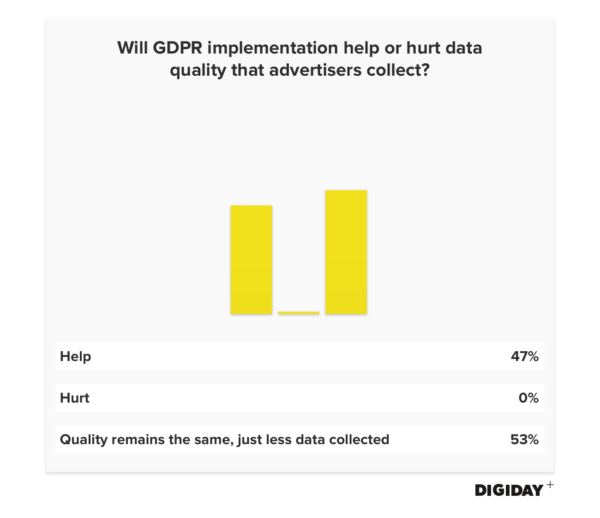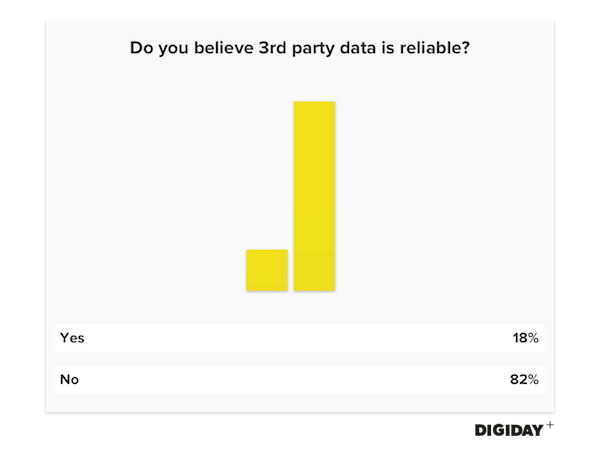Secure your place at the Digiday Media Buying Summit in Nashville, March 2-4
This research is based on unique data collected from our proprietary audience of publisher, agency, brand and tech insiders. It’s available to Digiday+ members. More from the series →
Digiday’s “Research in brief” is our newest research installment designed to give you quick, easy and digestible facts to make better decisions and win arguments around the office. They are based on Digiday’s proprietary surveys of industry leaders, executives and doers. See our earlier research on publishers implementing header bidding and ads.txt here.
The enforcement of the General Data Protection Regulation on May 25 will disrupt the business practices of most media companies.
Opponents of the law have made apocalyptic claims that the GDPR is “ripping the digital ecosystem apart.” Others more reasonably contend that certain targeting and data vendors will have to seriously adjust their business strategies to comply.
Despite the critics, the GDPR benefits the digital media industry. Digital advertising is rife with shady practices and inaccurate data that proper GDPR enforcement could reduce. In a survey of over 20 publishing and ad tech company executives at the Digiday Hot Topic UK: Data-Driven Publishing last November in London, Digiday found that people are warming to certain aspects of the GDPR. Nearly half of all respondents expect the GDPR to help improve the quality of data that advertisers collect, while none thought it would damage future data quality.

Fifty-three percent of respondents think data quality won’t change, but believe less will be collected as more users opt out of being tracked. The potential drop in first-party data doesn’t necessarily mean marketers will suddenly rush to prop up campaigns with third-party data from vendors and data management platforms. Why? Because almost all marketers hate third-party data to begin with.
More than 80 percent of people believe third-party data is unreliable. Earlier Digiday research on the GDPR found that publishers were most concerned about losing audience data as a result of the legislation. Instead of going back to data vendors, which the GDPR will significantly affect, marketers are already exploring other alternatives.
Publishers both in Germany and Portugal started pooling data to compete with the duopoly. Retailers have also shown an interest in sharing data. If publishers continue to transfer consumer data to each other as the GDPR mandates, these higher-quality pools of first-party data will be potent tools for marketers to mitigate the effects of the law. Additionally, marketers could also just align with GDPR’s intended purpose of improving trust with consumers by providing and encouraging transparent opt-in processes, in which users knowingly consent to sharing their data.
More in Media

Media Briefing: Turning scraped content into paid assets — Amazon and Microsoft build AI marketplaces
Amazon plans an AI content marketplace to join Microsoft’s efforts and pay publishers — but it relies on AI com stop scraping for free.

Overheard at the Digiday AI Marketing Strategies event
Marketers, brands, and tech companies chat in-person at Digiday’s AI Marketing Strategies event about internal friction, how best to use AI tools, and more.

Digiday+ Research: Dow Jones, Business Insider and other publishers on AI-driven search
This report explores how publishers are navigating search as AI reshapes how people access information and how publishers monetize content.





